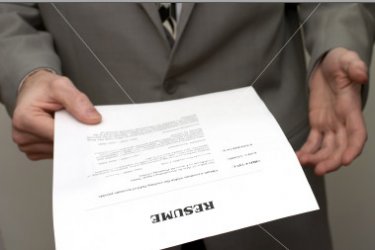
The Basics
Now that technology has been fully-integrated into our lives, becoming more aware of how to adjust is very important. The traditional method of application is used less often because of the useful tools called "internet and e-mail". Employers prefer applicants to send resumes via the internet because of its simplicity and organizational advantages for the company database. The following tips are to inform you of how to maintain an outstanding resume and cover letter, even within the company's massive database.
When sending an electronic resume (e-resume) ensure that attachments are compatible with the potential employer’s computer. Provide the most relevant parts of the resume and cover letter in plain text within the body of the email, just in case the attachment is unreadable. Just in case, provide a personalized summary because occasionally employers don't open attachments
Now a little advice on the technical aspect of sending an e-resume: each line of the e-mail, should have approximately 60 to 65 characters. Not only should it fit across most e-mail message windows, but when it does, it will provide a professional and clear image. Replace all of the 'tabs' with 'space bars' to ensure consistent spacing and to maintain a consistent look. Also, avoid the use of symbols not on the keyboard as they will appear entirely differently when the employer opens your e-resume.
More than the Basics
The words used in your resume have not been individually significant, until now: "[M]any medium and large companies use resume-scanning software. What this means is that resumes are usually scanned in and searched by keyword rather than just by objective or title" (Ream, 2000, p. 24). This form of resume search is a significant disadvantage to applicants because the person the company needs may not be selected because the keywords they were looking for aren't in the resume.
Here's what you need to know: Typically, "the magic words are often job titles, skills or areas of expertise related to the position" (Lankford, 2005, p. 87). Look at the job posting to find the principle terms or words used to best describe what skills the employer is seeking. Don't worry if you can't integrate them into your cover letter and resume; instead, what you can do is have a separate section in your resume for keywords. Then if you employer does use a search engine, it will be more likely to catch your extra keywords that are related to the positions you are applying for.
One More Piece Advice to Consider
Before attaching anything to your e-mail, ensure your name is on all the documents you send. Double check everything you e-mail is as clear and obvious as possible. Problems or difficulties, with your email package will cause the employer to casually shrug their shoulders and move on to the next applicant.
Last, but not least, e-mail yourself or a friend prior to sending to the employer. It is always best to test that everything is working: your attachments, the body of the e-mail, etc.
Here is your last e-advice: seriously consider these changes when you are sending applications via Internet. The small details within your resume and cover letter are what employers look for and what may be the difference between being employed and unemployed. When you are applying for a possible position, keep in mind that you need to ensure that your resume and technology correspond appropriately.
Works Cited
Lankford, K., & Anderson, J. (2005). A new RESUME for a new year. Kiplinger's Personal Finance, 59(1), 87-88. Retrieved Friday, January 19, 2007 from the Academic Search Elite database.
Ream, R. (2000). Rules for Electronic Resumes. Information Today, 17(8), 24. Retrieved Friday, January 19, 2007 from the Academic Search Elite database.














